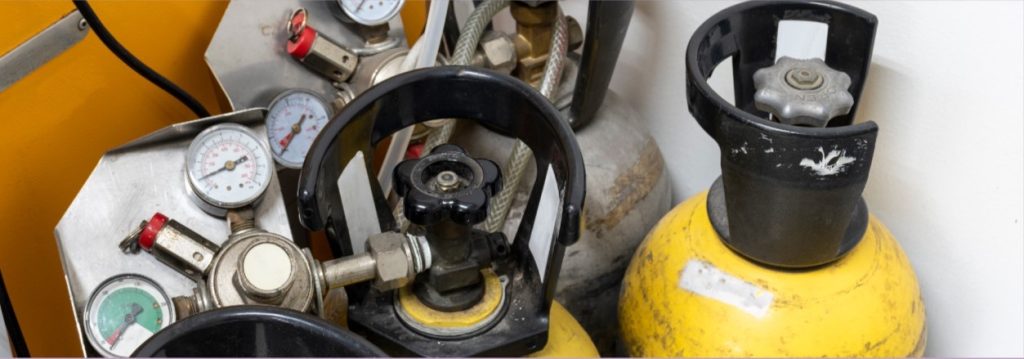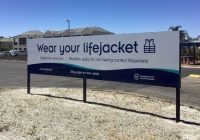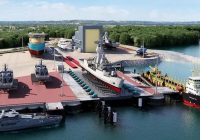Invisible gases. Real risks. Know the symptoms of gas poisoning.
Headaches, vomiting and dizziness are all symptoms a person may experience when exposed to hazardous gases. These symptoms are often mistaken as seasickness or intoxication.

Highly concentrated exposure to carbon monoxide, carbon dioxide or hydrogen sulphide can cause serious harm or death in minutes – and in some cases, seconds.
Common places on vessels for hazardous gases:
- sewage tanks
- CO₂ cylinders used to carbonate soft drinks
- heating appliances
- combustion of fuels
- toilet facilities
Manage the risk of hazardous gases on your domestic commercial vessel through:
- proper storage and maintenance of equipment, appliances and systems that create hazardous gases
- induction and training for crew and passengers including hirers of Class 4 vessels
- use of gas monitoring devices
Vessel owners, masters and crew must address the risk of hazardous gases in an operational risk assessment. This is a requirement under Marine Order 504 (Certificates of operation).
Did you get the lifejacket message?

Remember the lifejacket safety campaign? Whether you do or don’t, tell AMSA more. Your feedback can help shape safety culture, which helps save lives.
Update to domestic commercial vessel construction standards
AMSA recently published a Generic Equivalent Solution (GES) allowing domestic commercial vessels up to 24 metres in measured length to use ISO 12215 (Small craft – Hull construction and scantlings) for scantling determination.

Vessels operating within National Standard for Commercial Vessels (NSCV) C, D or E operational area limits can use this GES.
This does not apply to vessels subject to frequent side impact loading, such as pilot boats, tugs, trawlers and line handling boats. These types of vessels must continue to comply with the construction requirements in the NSCV Part C3.
The GES provides an alternative way to meet minimum safety standards required for the construction of vessels.
Read the latest GES to understand if your vessel design is eligible to use ISO 12215 for scantling determination.
Read the generic equivalent solution
Draft standards on marina and boat electrical installations – open for comment
Two draft standards on electrical installations in marinas and boats are now open for public comment through Standards Australia.
Developed by Committee EL-057 Boating and Boating Marinas Installations, these drafts are open for comment until Monday 17 November 2025.
Log into, or register a Standards Australia account to view the drafts and submit feedback:
- DR AS/NZS 3004.1:2025 Electrical installations – Marinas and boats, Part 1: Marinas
- DR AS/NZS 3004.2:2025 Electrical installations – Marinas and boats, Part 2: Boat installations
New domestic commercial vessels are required to comply with AS/NZS 3004.2 standard under the National Standard for Commercial Vessels (NSCV) Part C5B – Electrical.
Have your say to help shape the future of electrical safety in marinas and on boats.
World Maritime Day: our ocean, our obligation, our opportunity
25 September was World Maritime Day. This year, the International Maritime Organization (IMO) highlighted the ocean’s vital role in the global economy – and the urgent need to protect it from human impacts.
Your role in protecting our ocean
All of us can do something to protect our oceans. Domestic commercial vessels can manage waste as part of safe and sustainable operations. This starts with good management:
- Sort and separate waste on board for recycling and shore disposal
- Use port, marina and harbour facilities to dispose of waste
- Maintain records – some vessels must keep a garbage record book and management plan
- Display MARPOL placards – required for vessels 12 metres or longer (order free placards from AMSA)
Learn more about garbage disposal on domestic commercial vessels to keep our ocean clean.
Tell us what you need from the AMSA website
AMSA say they are exploring how to improve the AMSA website and would love your input.
Sign up to participate in an interview or online website testing to help AMSA make a better website.
Research sessions will happen between Monday 13 October and Friday 7 November 2025.
Your feedback will make a huge difference to the website – for you and everyone else who uses it.
Sign up todayThis news was provided by AMSA, via their monthly newsletter. Visit AMSA at www.amsa.gov.au.








